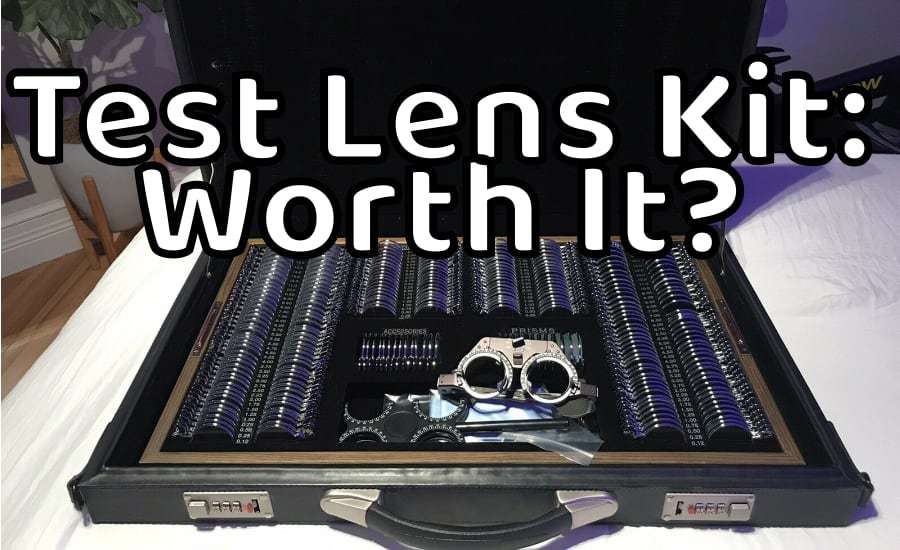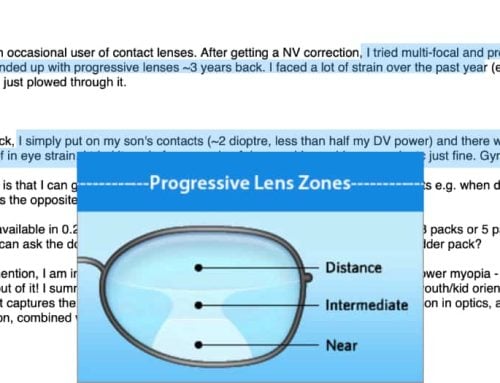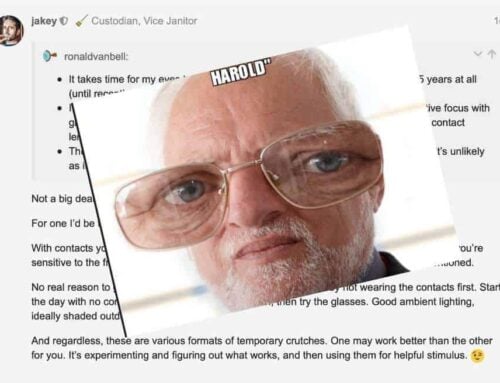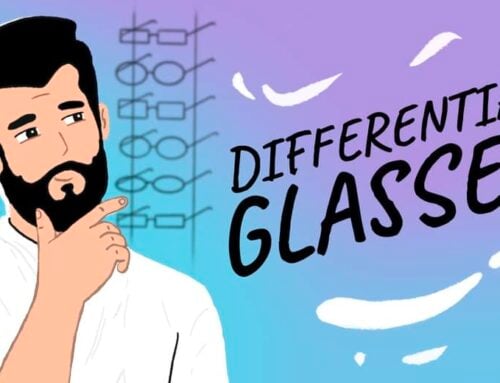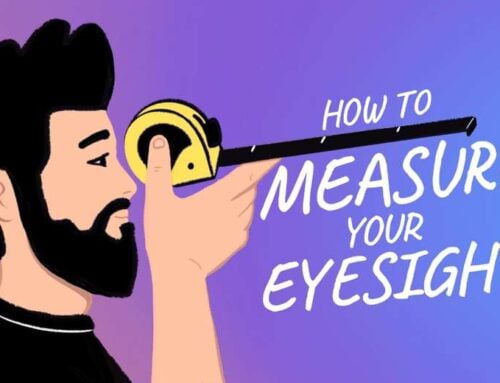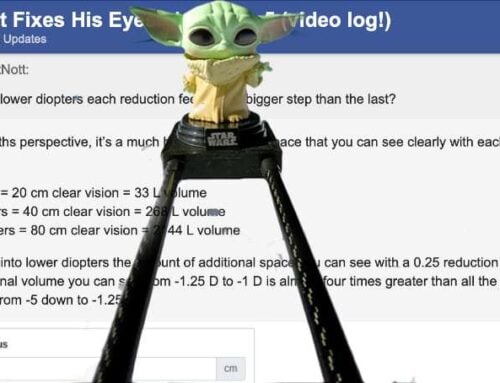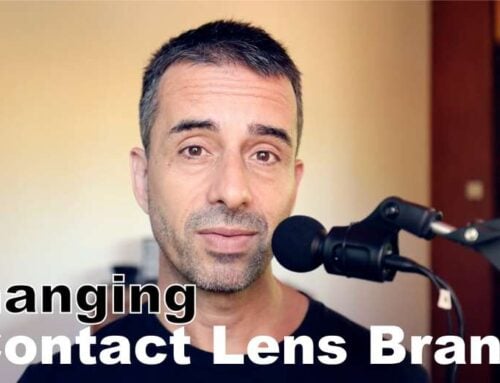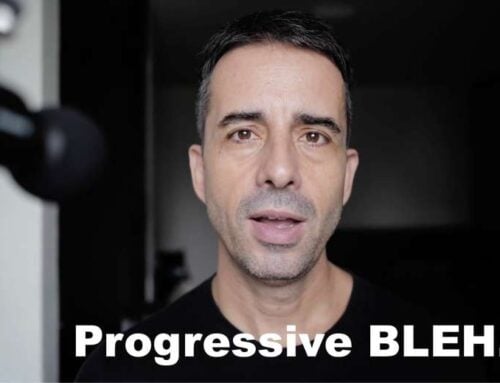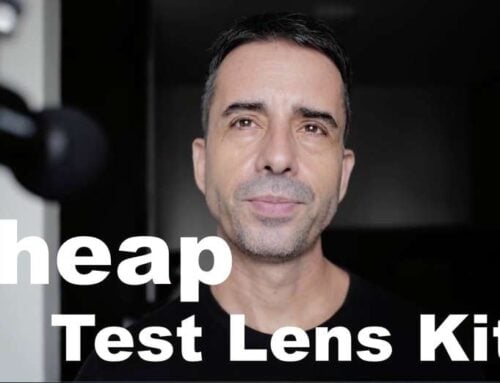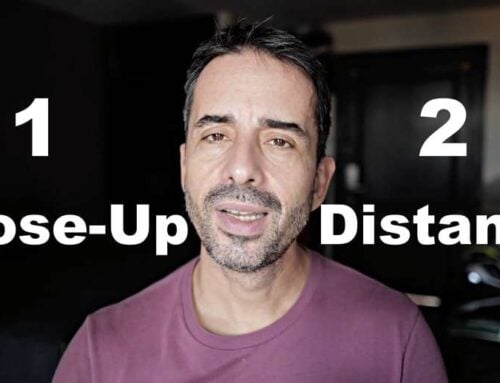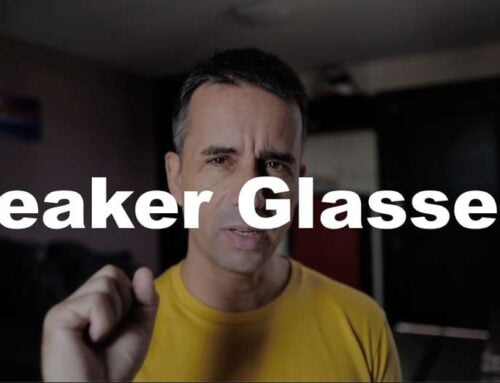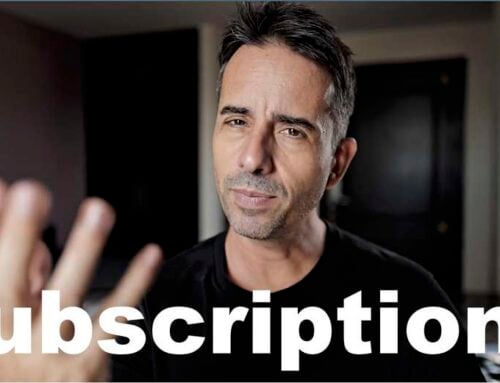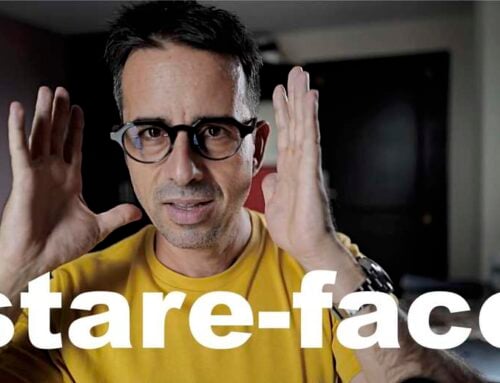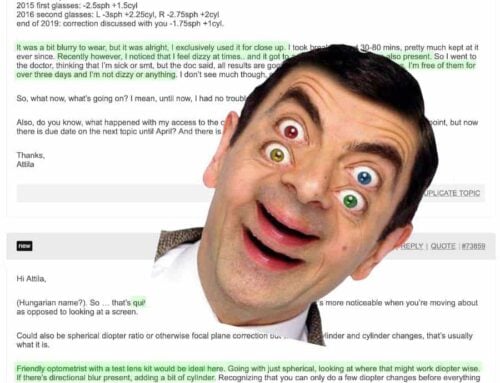Reposted from our Le Meow Forum, Darrin’s test lens kit review:
While I suspect that most people on this forum aren’t going to be interested in purchasing a $625 trial lens set new, I figured I’d throw this together anyway since you can find these kits on eBay and elsewhere for far less.
For those who aren’t familiar with the brand, Pioneer International (PioneerStudent.com or PioneerDoctor.com) sells professional level ophthalmic products. I’m not sure if you can even purchase them new unless you’re a doctor, ophthalmology resident, or optometry student.
I found my case on eBay for less than what I would have paid for a new 266 piece metal-rim trial lens set from UCanSee.com 1. In addition to the leather case, walnut lens tray, and lenses, the seller threw in a Pioneer 54-70mm titanium trial frame (made by OptiMark), a Pioneer trial clip set with level, and a Pioneer eight well flipper. We’re talking like $900 worth of professional-level gear for about 70% off of that price before tax & shipping. Everything was open box but looked like it had never been used. I assume I reaped the reward of some former optometry student changing their mind about college and deciding to sell off the gear they got with financial aid money.
The Trial Lens Kit
What comes inside:
- Leather case with locks & steel-reinforced handle, shoulder strap, walnut inner tray, felt padding on both the tray and inner case.
- 269 lenses. Glass lenses with metal rims (standard 36mm ID / 38mm OD)
- Square & rounded tabs (along with +/- punchouts) to differentiate minus and plus lenses
- (Note: Pioneer claims an accuracy of less than 1/2 of 1% power variance on lenses)
- Spheres (164): 41 pairs each, both minus and plus (± 0.125D to 20D)
- 0.125D (1)
- 0.25D to 5.75D in 0.25 steps (23)
- 6.00D to 9.50D in 0.50 steps (8)
- 10.00D to 15.00D in 1.00 steps (6)
- 16.00D to 20.00D in 2.00 steps (3)
- Cylinders (80): 20 pairs each, both minus and plus (± 0.25D to 6.00D)
- 0.25D to 3.75D in 0.25 steps (15)
- 4.00D to 6.00D in 0.50 steps (5)
- Prism Lenses (12): 0.5 (x2), 1 (x2), 2 (x2), 3, 4, 5, 6, 8, 10
- Accessories (13):
- BL: Occluder
- SS: Stenopeaic Slit Plate (x2) – 1mm & 1.5mm
- PH: Pinhole Occluder (x2) – 1mm & 1.5mm
- RF: Red Filter
- GF: Green Filter
- PF: Polarizing Filter
- FL: White Filter (frosted)
- PL: Plano Lens
- MR: Maddox Rod (White)
- JCC: Jackson Cross Cylinder Lens (x2) – 0.50 & 1.00
- Lifetime warranty
In my comparison between this kit and the UCanSee kit, obviously, this one has a lot more lenses (and higher powers), but that was to be expected. The UCanSee 266 piece kit has a slightly different configuration of lenses but is equivalent. I can immediately tell the difference when comparing the lenses though.
- The UCanSee lenses have a similar mounting system but they use a lower gauge metal. The Pioneer ones use a higher gauge steel ring and tab design with a screw to adjust them.
- The UCanSee lenses are also glass, but a few of the lenses had tiny imperfections around the edges (chips/cracks from mounting stress I assume) and some of the higher powers were not so great optically. The Pioneer lenses don’t have either of those problems from what I’ve seen so far, but I haven’t inspected every lens yet.
One of the things I like about having the full set over the 68-piece set is that I don’t have to worry about slotting multiple lenses to get my base spherical correction since they have two of each lens and they go up to -6.00 in 0.25 steps and then switches to 0.50. My normalized only go up to -6.00 in one eye, so this is perfect for me.
One downside of the Pioneer kit is that IT IS HEAVY! All that metal and glass (and the metal/leather case & wood shelf) add up. No wonder it comes with a shoulder strap. Pioneer also offers cases with wheels and such for this reason. 
The Trial Frame
I purchased my UCanSee kit along with their full function trial frame (which I still have). I found that to be very adjustable, but incredibly uncomfortable to use for more than short periods of time. The Pioneer titanium trial frame operates a bit differently and is missing a couple of minor adjustments, but it is lighter and far more comfortable. UCanSee also sells its own titanium trial frame which would probably be a better comparison since they look nearly identical.
In any case, I’m very happy with this trial frame. I can wear it for extended periods without discomfort which is helpful when trying out differentials.
The 8-Bay Flipper
The 8-bay flipper is well made but plastic. The lenses fit perfectly in the molded slots and could be used to replace a trial frame in low-complexity corrections. It’s great for comparing two binocular lens configurations! I didn’t know what I was missing without this.
Trial Clip Set
I haven’t tried out the Trial Clips so I can’t really comment on these yet, but they do look pretty.  UCanSee doesn’t appear to be competing in this space since they don’t have their own knock-off model.
UCanSee doesn’t appear to be competing in this space since they don’t have their own knock-off model.
Summary
All in all, is this overkill for Endmyopia use? Yes… most definitely. The UCanSee 68-piece set does the same stuff that this one can, just with a slight reduction in optical quality and a bit more aggravation due to having to stack lenses. However, at the price, this was a much better deal than any of the UCanSee 266 piece kits. These normally sell for closer to $400 without the trial frame, trial clip set, and flipper; but you can find them far cheaper if you wait long enough.
In any case, if you have enough prescription complexity to need a trial lens set to start with, then you should take the time to look for used Pioneer sets on eBay before looking at UCanSee or other options. These have way better build quality and optical clarity than the UCanSee 68-piece set I had before. But then again, that is what you should expect when comparing a $110 kit to a $650 kit.
I hope this is useful to someone in their own journey to 20/20!
—
And that’s it for the review.
For more excellent posts, reviews, and community, visit our Le Meow forum.

